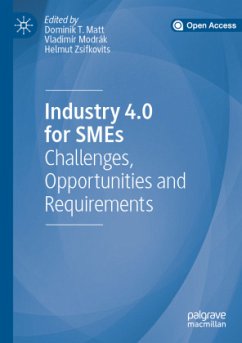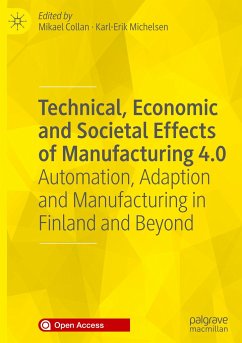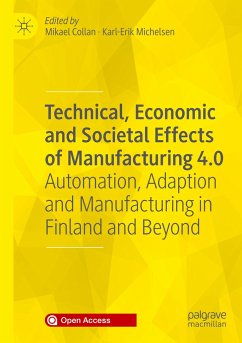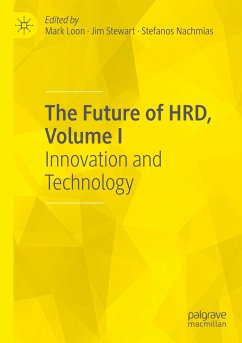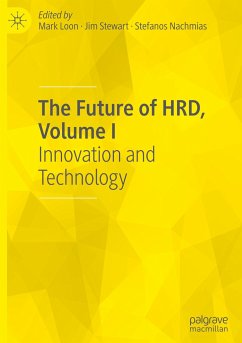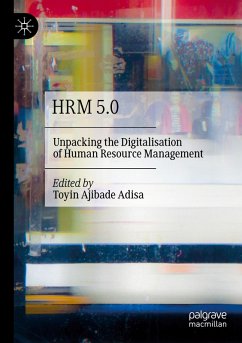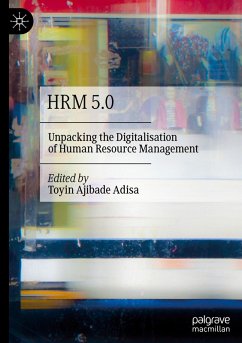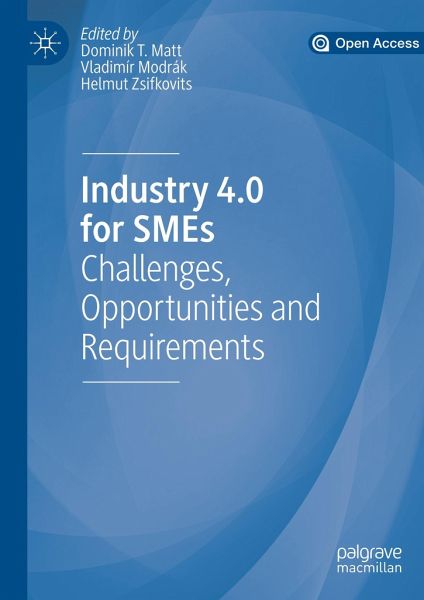
Industry 4.0 for SMEs
Challenges, Opportunities and Requirements
Herausgegeben: Matt, Dominik T.; Modrák, Vladimír; Zsifkovits, Helmut
Versandkostenfrei!
Versandfertig in 6-10 Tagen
22,99 €
inkl. MwSt.

PAYBACK Punkte
11 °P sammeln!
This open access book explores the concept of Industry 4.0, which presents a considerable challenge for the production and service sectors. While digitization initiatives are usually integrated into the central corporate strategy of larger companies, smaller firms often have problems putting Industry 4.0 paradigms into practice. Small and medium-sized enterprises (SMEs) possess neither the human nor financial resources to systematically investigate the potential and risks of introducing Industry 4.0. Addressing this obstacle, the international team of authors focuses on the development of smar...
This open access book explores the concept of Industry 4.0, which presents a considerable challenge for the production and service sectors. While digitization initiatives are usually integrated into the central corporate strategy of larger companies, smaller firms often have problems putting Industry 4.0 paradigms into practice. Small and medium-sized enterprises (SMEs) possess neither the human nor financial resources to systematically investigate the potential and risks of introducing Industry 4.0. Addressing this obstacle, the international team of authors focuses on the development of smart manufacturing concepts, logistics solutions and managerial models specifically for SMEs. Aiming to provide methodological frameworks and pilot solutions for SMEs during their digital transformation, this innovative and timely book will be of great use to scholars researching technology management, digitization and small business, as well as practitioners within manufacturing companies.





